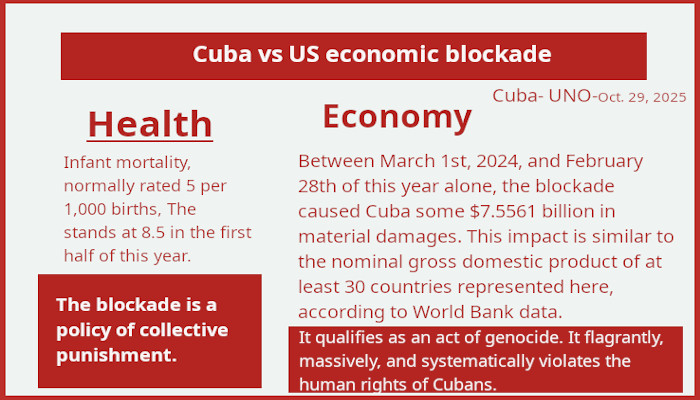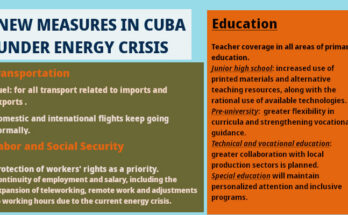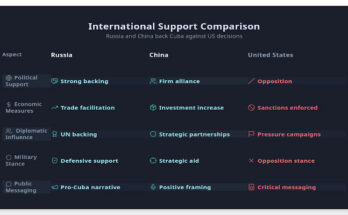Despite lobbying by Washington, the United Nations General Assembly overwhelmingly clamor for an end to a U.S. economic blockade on Cuba, by adopting a resolution with 165 votes in favor, seven against and 12 abstentions. The U.S. convinced Argentina, Hungary, North Macedonia, Paraguay and Ukraine to join it and Israel in voting against Cuba’s resolution.
Last year, the General Assembly adopted the resolution with 187 countries voting in favor. The United States and Israel were the only countries that voted against it, while Moldova abstained.
Cuba has rejected as unfounded the U.S. claims, and released information on legal proceedings against Cubans for mercenary activity in Ukraine. Communist-run Cuba has openly sided with its ally Russia in the conflict while also calling for peace talks.
The U.N. vote carries political weight, but only the U.S. Congress can lift the Cold War-era embargo. The 193-member U.N. General Assembly has adopted the resolution annually for more than three decades – except for 2020 during the COVID pandemic.
“The U.S. exerted a level of pressure on this occasion that was unprecedented and yet they don’t have much to show for it,” de Cossio said. “The lesson is that the U.S. has the capacity to intimidate and coerce but it is limited.”
The United States consistently has voted against the U.N. resolutions since 1992 but abstained for the first time in 2016 under former President Barack Obama, as Washington and Havana forged a closer relationship.
Washington then returned to opposing the resolution under President Donald Trump’s first administration. Trump also rolled back nearly all measures taken by Obama to ease the embargo and improve ties between the United States and its old Cold War foe.
The United States continued to vote no under Trump’s successor President Joe Biden’s administration.




